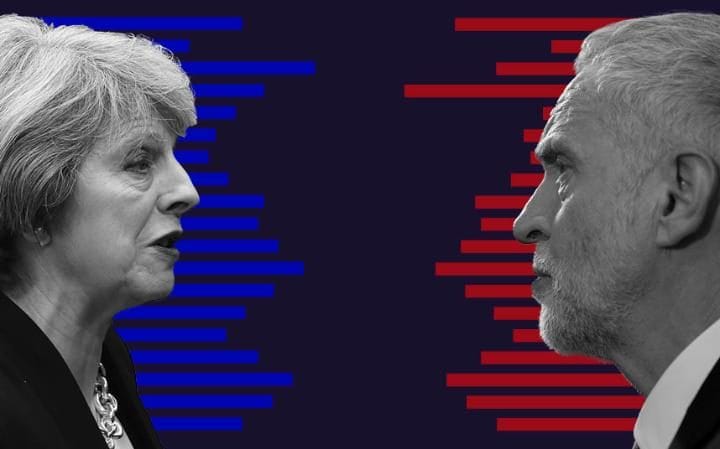A Snap Election for the UK

On the 18th April Britain’s Prime Minister, Theresa May made the announcement that there would be a Snap Election on the 8th of June, despite the fact that she had repeatedly insisted that she had no intentions to divert from the planned election in 2020.
Speaking outside of Downing Street, on her reasons for the Snap Election, she stated that she “now concluded that the only way to guarantee certainty and security for the years ahead is to hold this election and seek support for the decisions we must take”
Despite a strong and convincing speech, which painted the image of a stable leadership, her opponents have spoken out against this image and claimed that the only reason May called for a General Election was because she was so acutely aware that she was in a position of great strength. First Minister Nicola Sturgeon recently said that the Prime Minister had called the election for ‘selfish and party political interests’. Calling an election at a time where her opposing parties aren’t as strong as they could be, does certainly support this theory. Especially since winning would be a personal achievement, as former PM David Cameron stepping down after the Brexit result last year meant that she became leader by default rather than a public vote. A possible win next month would confirm that she has the public’s support to deliver her policies and as she puts it: “guarantee certainty and stability for the years”
Labour leader, and main opposition Jeremy Corbyn supported the call for an election, something which seems like a bold move from a man whose own party is becoming progressively more split under his leadership. However, his confidence in himself seems to be unaffected by this, recently saying that regardless of the result on the 8th of June he will remain a proud leader of his party. With his eyes firmly set on the future, he says “This election isn’t about Brexit itself. That issue has been settled. The question is now what sort of Brexit do we want – and what sort of country do we want Britain to be after Brexit?”
This is a question that can only be answered by the British Public. On the 5th of May Parliament was officially dissolved and across Britain parties began their lobbying for votes. Local elections were held and the Conservative party made major progress across the country. A total of 4581 seats were up for grabs across 88 councils including Wales and Scotland. It seems as if all parties other than the Conservatives didn’t have the success they were hoping for with Labour suffering heavy losses and the Liberal Democrats losing ground. The Prime Minister’s party however gained seats and now have 28 councils in total, which puts them in a good position for the upcoming general election.
As well as these results, another factor that is likely to influence the general election massively in May’s favour is the lack of young voters. According to recent figures, voters under the age of 24 are the only group of people who as a majority are pro-labour. Yet, they are also the most unlikely to vote, a trend which was proven by last year’s referendum statistics.
Whilst we can’t say for sure who is guaranteed to become the next Prime Minister it is clear that the key aim of the upcoming election is to get Britain through Brexit and safely out onto the other side. Voting on the 8th of June is a chance to keep Britain strong. And until then we won’t know who the British Public truly think can manage to do this.
Evan Merner & Julija Kolosova


